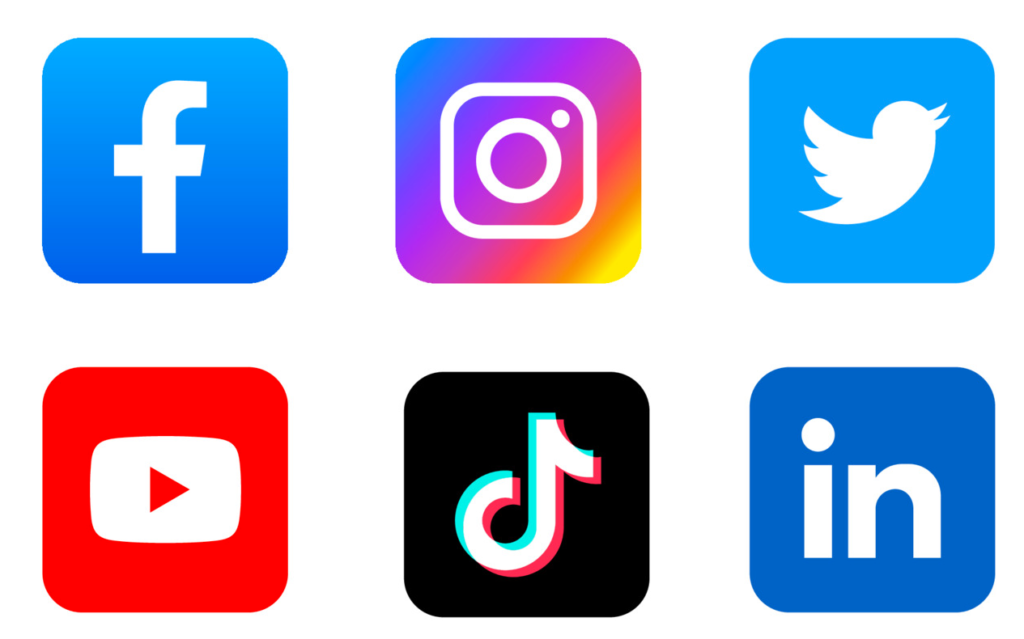Which Social Media Platform Is Best for Your Business?
Updated on September 13, 2023 by Tim Donahue
What are the key differences?
How to choose the right social media platforms for your business
In today’s digital age, choosing the right social media platforms is a critical decision for your business. But with a sea of options, how do you decide which ones are the best fit for you?

In this guide, we’ll dissect the Big 6: Facebook, Instagram, YouTube, Twitter, LinkedIn, YouTube, and TikTok, helping you determine where your business should make its mark.
Table of Contents
- Introduction
- A Glance at the Big 6
- Individual Flair: What Sets Each Platform Apart
- Aligning Business Types with Platforms
- The Focused Approach: Why Two is Better Than Six
- How to Choose Your Dynamic Duo
A Glance at the Big 6
Before diving deeper, let’s familiarize ourselves with the Big 6 social media platforms that dominate the digital space. From the professional sphere of LinkedIn to the youthful vibe of TikTok, each platform serves a different demographic and purpose.
Here’s a quick overview:
- Facebook: The veteran of social media, ideal for a broad demographic.
- Instagram: A visual playground for brands.
- YouTube: Best for videos and more in-depth content.
- Twitter: A real-time news and engagement platform.
- LinkedIn: The go-to for professional networking.
- Pinterest: A visual search engine for ideas and products.
- TikTok: The latest addition, focused on short-form video content.
Individual Flair: What Sets Each Platform Apart
Each of the Big 6 has distinct strengths and nuances that make them ideal for different business objectives:
- Facebook: Known for its broad user base, Facebook is excellent for businesses that want to reach a diverse and large audience. It’s particularly effective for community building and customer service.
- Instagram: This platform shines in visual storytelling. If your brand thrives on high-quality images, short videos, or influencer partnerships, Instagram is a must.
- YouTube: Content that has more depth, such as “how to” content, and discussions about various topics, excellent for longer videos.
- Twitter: Ideal for real-time engagement, Twitter is your go-to platform for customer service and timely updates. If you’re a news agency, a blogger, or a brand that thrives on immediacy, Twitter is a fit.
- LinkedIn: For B2B companies or businesses that are focused on professional networking, thought leadership, and hiring, LinkedIn is unmatched.
- Pinterest: Excellent for businesses that can categorize their products into boards, like fashion, home decor, and cooking. It’s also good for driving high-quality traffic to blogs.
- TikTok: The place for viral, short-form video content. If your target audience skews younger and you want to build brand awareness quickly, consider TikTok.
Understanding these key differences will help you align your business goals with the most suitable platforms.
Aligning Business Types with Platforms
Not all platforms serve all business types effectively. Here’s a simple breakdown:
- E-commerce: Facebook and Instagram
- Media: Twitter and TikTok
- B2B: LinkedIn and Twitter
- Creative Businesses: Instagram and Pinterest
Selecting the appropriate platform for your business type is crucial for reaching your target audience effectively.
The Focused Approach: Why Two is Better Than Six
While it’s tempting to establish a presence on all platforms, spreading yourself too thin can backfire. Focusing on two platforms allows you to engage more deeply with your audience and optimize your social media strategy.
So why two? It’s a manageable number that allows for quality customer engagement without overwhelming your resources.
How to Choose Your Dynamic Duo
Picking two platforms can be daunting, but consider the following:
- Your target audience: Where do they hang out?
- Content type: What form of content best represents your brand?
- Business goals: Are you aiming for brand awareness, customer engagement, or sales?
Once you’ve analyzed these factors, picking your two best platforms becomes a much simpler task.

Tim Donahue
StartABusiness.Center
Updated on September 13, 2023